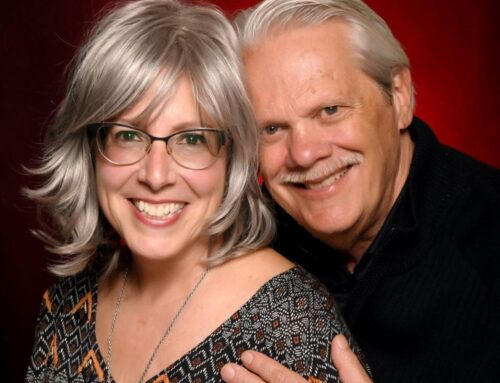‘Becoming Led Zeppelin’ Is an Exhilarating, Hard-Rocking Documentary of the Band’s First 18 Months
February 7, 2025
The world loves a good “rise of” story — one that captures the first months of a now-superstar artist’s meteoric rise, whether it’s Elvis or the Beatles or Madonna or Prince or Nirvana (that sound you hear is keyboards clicking on “Rise of Chappell Roan” biopic scripts). It’s an undeniably compelling premise: seeing how and why the superstar became who they became, before the breakups, crackups and cliches, reliving that first burst of magic almost in real time.
In its way, the rise of Led Zeppelin was just as inexorable as the above-mentioned artists’: They formed in August of 1968 and less than 18 months later, their second album had replaced the Beatles’ “Abbey Road” at the top of the Billboard albums chart, and that was just the beginning. Zeppelin would become the most dominant rock band on the planet for the next decade, with a blaze of classic songs, great albums and galvanizing tours until excess, tragedy and substance abuse brought them down, culminating with drummer John Bonham’s death from alcohol poisoning in 1980 at the age of just 32.
But all that came later: The story of that first 18-month-long blaze of glory is told in deep detail in Sony Pictures Classics’ “Becoming Led Zeppelin,” which arrives in IMAX theaters today (after being in the works for so long that Variety reviewed an earlier cut at a film festival in 2021). It traces the band’s origin story and rise via rare video footage, new and old interviews, and creative use of photos, memorabilia and more.
Popular on Variety
The process was more challenging than it might seem: Zeppelin were famously film-phobic — a policy aggressively enforced by their notoriously violent 300-pound manager, Peter Grant, and his goons —and surprisingly little performance footage of them exists, especially of that first 18 months: just a handful of early TV appearances, grainy fan-shot footage and of course their triumphant January 1970 concert at London’s Royal Albert Hall, which was filmed by the BBC and caps this two-hour-ish documentary. Yet director Bernard MacMahon and his team have made the most of what they have, combining it with period photos, newsreels of contemporaneous events and footage of audiences at concerts and festivals of the era; perhaps most revelatory, they unearthed a previously unaired audio interview with Bonham, who almost never spoke to the press.
“We spent five years flying back and forth across the Atlantic scouring attics and basements in pursuit of rare and unseen film footage, photographs and music recordings,” writer/producer Allison McGourty says in the press materials. “Then we transferred each piece of media with custom techniques, so that in IMAX, these 55-year-old clips and music would look and sound like they came out of the lab yesterday.”
The results are stunning and near-definitive: We move quickly through the bandmembers’ childhoods and early years (there’s Jimmy Page performing on television as a 13-year-old, some amazing flower-power-era photos of singer Robert Plant and even footage from Bonham’s teen wedding), before moving to Page and bassist John Paul Jones meeting during their busy session work in the ‘60s and the former’s stint with the trailblazing band the Yardbirds, and Plant and Bonham’s nearly lifelong relationship as friends and musicians. Plant also speaks unashamedly of being homeless and his complete lack of success in his early years.
But all of that changed in August of 1968, after the Yardbirds split up and Page sought new collaborators. He was tipped off to Plant, who was playing with the unfortunately named Hobstweedle; he in turn brought in Bonham, and Jones caught wind of Page’s search and offered his services. The four lugged their equipment into a tiny studio in London’s Soho district, plugged in, and as Jones says in the film, “The room just exploded.”
And from there, Led Zeppelin were shot out of a cannon. After a brief Scandinavian tour and a series of low-key dates in England, the band flew to America for the first time on Christmas Eve, 1968, for dates opening for Vanilla Fudge — and the rest is history. On that tour, they lit up such legendary venues as the Fillmores East and West, the Boston Tea Party and, crucially, Hollywood’s Whisky-a-Go-Go, setting off a buzz that quickly turned into an inferno as the band toured the U.S. for weeks on end in 1969. The band played an incredible 139 concerts in that year — traveling on commercial flights, in cars, vans, buses, trains and worse — and recorded their blockbuster second album between tour dates at 12 different studios in five cities, including one in Vancouver that Plant described as a “hut.”
We follow the group through that exhausting, exhilarating and head-spinning 1969 as they get bigger and bigger in the U.S. — receiving gold records for their debut album in the summer, just six months after its release — and the fervor finally spread to their initially indifferent native U.K., climaxing with the Royal Albert Hall show. Plant and Bonham were both just 21 years old.
The narrative is moved along not only by the footage but the new interviews with the three surviving bandmembers, who gamely sat for hours of interviews but seemed to treat their statements as definitive, even with long-told, half-century-old tales. Perhaps most moving is seeing the looks on the surviving bandmembers’ faces as they hear the Bonham interview recording for the first time.
However, this is an authorized documentary and as a result, it’s a rose-colored one: There is no mention of Bonham and Grant’s penchant for violence, which would grow far worse as the band’s fame exploded; of the band’s abominable treatment of women, or the growing internal discord over financial arrangements (Led Zeppelin was originally a partnership between just Page and Grant, with the others on salary). Every success story has a dark side, and Zeppelin’s was darker than many.
But having said that, “Becoming Led Zeppelin” is an exhilarating portrait of the light-speed rise of one of the most exciting artists in rock history — there’s nothing quite like the power of a rock band with something to prove — and this documentary channels that energy beautifully.
The only glaring omission (apart from the one above) is the absence of a Led Zeppelin version of the first song the four musicians ever played together — and the opening number of their first and last concert tours — the rock and roll classic “Train Kept A’Rollin’.” The original hit version by Johnny Burnette is played and the song is mentioned several times in the film, but the band never recorded it in a studio and apparently the rights to the live versions — the best of which you can hear here — could not be cleared for the film. It’s unfortunate, because that opening number was a perfect metaphor for Zeppelin in 1969: supercharging classic rock ingredients into something totally new, and the band’s explosive version of the song — which conjures visions of a train barreling down the track at full speed — evokes the way they were tearing through the world at the time.
“Becoming Led Zeppelin” channels all of that energy into two hours, and it’s an absolute must-see for fans.
“Becoming Led Zeppelin” is directed by Bernard MacMahon and written by MacMahon and Allison McGourty. It is produced by McGourty and Paradise Pictures in association with Big Beach, with executive producers Michael B Clark, Alex Turtletaub, Cynthia Heusing, David Kistenbroker, Duke Erikson, Simon Moran, and Ged Doherty. Editing is by Dan Gitlin, sound supervision is by Nick Bergh, sound restoration is by Peter Henderson, with archival research from Kate Griffiths and Rich Remsberg.
Search
RECENT PRESS RELEASES
Related Post


